View all Standards for Texas Essential Knowledge and Skills for Theatre Arts
C.3.F apply expertise in one or more areas of theatre production, demonstrating responsibility, artistic discipline, and creative problem solving.
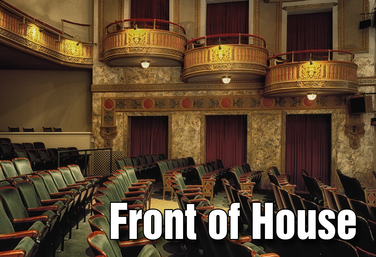
UNIT
Part of the Drama One Curriculum
Front of House
by Karen Loftus
This unit looks at theatre jobs in the business category: front of house, marketing, and box office. The aim of these jobs is to interact with the public. Students are able to identify what “front of house” refers to and understand the various roles of a theatre company’s front of house members.
Students will also explore how a show is marketed and demonstrate their knowledge of marketing by creating a simple marketing campaign for an original show.
Read More
about Front of House
Read Less
about Front of House
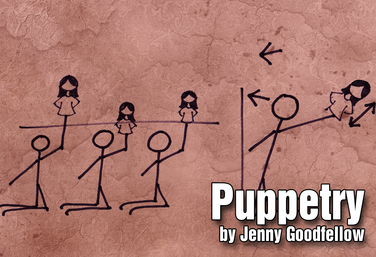
UNIT
Puppetry
by Jenny Goodfellow
This unit on Puppetry is designed for middle school and up, to introduce students to the material and get them comfortable with performing in a safe and low exposure environment.
This is a unit that builds to a culminating experience for your students. Each lesson is designed to explore techniques, provide opportunities for creative collaboration among your students, and give them opportunities to perform. Some of the lessons require materials to build or create puppets. Puppetry can be as easy as drawing a face on your finger for finger puppets, to actually purchasing your own finger puppets for students to use.
While the focus of this unit is puppetry, your students will explore other skills as well. There’s the obvious ones of creative thinking, teamwork, and problem solving. They are also going to explore storytelling, performing skills, and playwriting.
Read More
about Puppetry
Read Less
about Puppetry
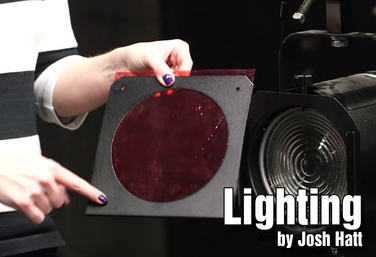
UNIT
Part of the Technical Theatre Mini Units Curriculum
Lighting
by Josh Hatt
This is an introductory mini-unit to lighting that can be achieved whether or not you have a lighting system. Students will work toward being able to demonstrate their knowledge of lighting effectiveness.
The questions of the unit include: How can light affect a scene? How can lighting affect the audience? What is the mood of the scene? How does lighting play a part in creating mood? How can you use shadows onstage? How does color impact the scene?
Read More
about Lighting
Read Less
about Lighting

UNIT
Theatre Etiquette
by Kerry Hishon
When teaching students who are brand new to theatre, it’s important to discuss and apply the expectations of the drama classroom and the theatrical world. How do you implement and instill theatre etiquette in your classroom and your rehearsals – before a show and backstage? A cohesive theatrical community starts with the rules and codes of behaviour both onstage and off.
Topics covered within the unit include: What is Etiquette, Real World vs Theatre World Etiquette, Audience Etiquette, Audition Etiquette, Pre-Show and Performance Etiquette. The unit ends with a culminating activity which included a rubric and reflection.
Read More
about Theatre Etiquette
Read Less
about Theatre Etiquette

UNIT
Elements of Costume Design *Hyperdoc
by Anna Porter
In this unit, students will explore and collaboratively take on the role of costume designers. Students will explore the elements of design, director’s concept, and the considerations for costume design. They will then apply this knowledge in a culminating project.
This unit has been designed to integrate technology into the curriculum. Students will utilize technology throughout via HyperDocs, internet research, and Google tools such as Google Drive, Google Forms, Google Slides, and Google Docs. A digital Learning Tools Introduction resource is provided for additional help in using the different tools and applications.
Read More
about Elements of Costume Design *Hyperdoc
Read Less
about Elements of Costume Design *Hyperdoc
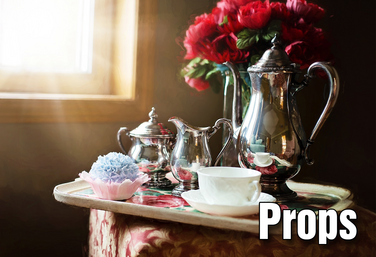
UNIT
Part of the Stagecraft Without a Theatre Curriculum
Props
by Karen Loftus and Kerry Hishon
Students will identify categories of props and which people create or obtain props. They’ll analyze a script for needed props, use critical-thinking skills to problem solve prop issues, and create a prop.
Read More
about Props
Read Less
about Props
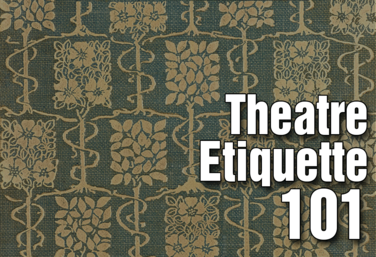
PD COURSE
Theatre Etiquette 101
by Kerry Hishon
Instructor Kerry Hishon is an actor, director, writer, and stage combatant with years of experience in youth theatre. Her course, Theatre Etiquette 101, is designed to help students be successful in their theatrical journeys.
When teaching students who are brand new to theatre, it’s important to discuss and apply the expectations of the drama classroom and the theatrical world.
This course starts by explaining "what is theatre etiquette", and then moves through every step in the production process from audition to post-show recovery.
Every module has tips for both you and your students, classroom exercises, rehearsal exercises, and reflections. There are also printable posters included to use in your classroom or backstage.
Read More
about Theatre Etiquette 101
Read Less
about Theatre Etiquette 101

PD COURSE
Marketing the Arts
by James Van Leishout
This course covers the four stages of creating and implementing a marketing plan. It starts with the question, what are you selling?, and goes all the way through to evaluation. The course covers both traditional and new media, with examples and opportunities to apply the learning to each teacher's own situation.
Read More
about Marketing the Arts
Read Less
about Marketing the Arts
View all Standards for Texas Essential Knowledge and Skills for Theatre Arts Standards Master List